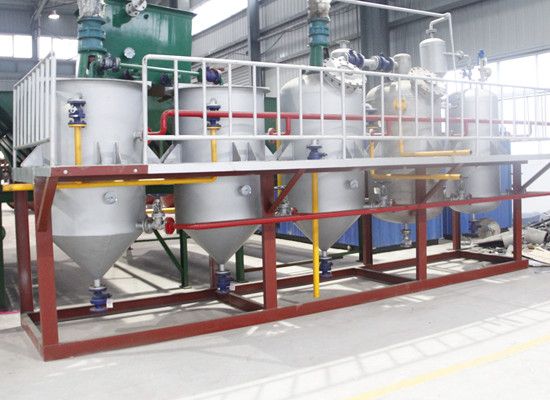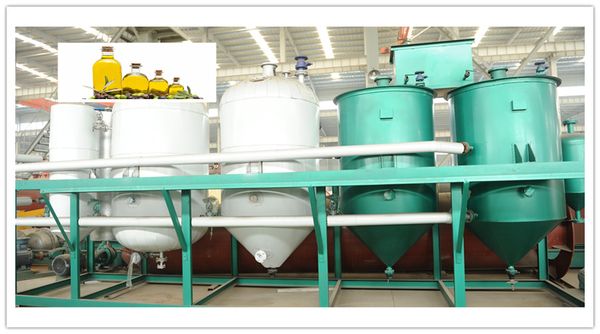
Small edible oil refining equipment
Crude oil contains impurities such as phospholipids, proteins, mucilage, and glycosyl diglycerides, and thus constitutes a sol system with oils and fats and is called pectin-soluble impurities.The presence of these peptized impurities not only reduces the use value and storage stability of the oil, but also has a series of adverse effects during the refining and processing of the oil, which ultimately leads to a decline in the quality of the refined oil.For example, colloids cause excessive emulsification during alkali refining so that oils and soaps cannot be separated well, that is, the addition of neutral oils to the saponins entails an increase in the amount of refining, and at the same time increases the amount of soap in the oil and increases the number of washings. And oil loss caused by washing; decolorization gel will cover part of the decolorizing agent active surface, making the decolorization efficiency decreased; deodorant temperature is higher, the gum will change, increase the color of the oil, hydrogenation will reduce the hydrogenation rate.Therefore, the oil refining process generally requires degumming.
